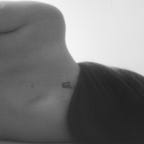Admired Photographers: Dorothea Lange
To continue with the series I called Admired Photographers, in which I have already talked about Henri Cartier-Bresson and Vivian Maier; I would like to tell you about one of the first women to be considered an essential figure in photography — especially documentary — Dorothea Lange.
Bad as it is, the world is potentially full of good photographs. But to be good, photographs have to be full of the world — Dorothea Lange
Dorothea Lange was born in New Jersey (USA) in 1895 and was studying to become a teacher when photography called her in 1913, going to study at the Clarence H. White School until graduation in 1917¹. Interested in portrait photography, she opened a studio in San Francisco, alongside starting to document homeless life in the city and their living conditions¹. Her photography and work gained her a job through the Depression as a photographer for the US government, to document the life of farmers and migrant workers throughout that period of time².
It was during this period when, traveling across the US on assignment for the administration, Lange came across and shot her most famous and influential portrait, Migrant Mother. In this portrait, which she took seven exposures of², we can see a woman with her children, her face being the pure definition of concern and worry about the future of herself and her kids during the most uncertain economic period, a life without guarantees.
Dorothea Lange became the first woman to be awarded the Guggenheim Fellowship in 1941¹, and she continued working to document the social injustices of that period of time in the USA until her death in 1965, committed to employing her photography as a power to change perspectives and create awareness of real, social problems².
Dorothea Lange was very critical of the direction photography was taken, her critique being that it had lost its familiarity and intimacy for the spectacle by elevating the illusion over reality². And I sort of agree with her critique. I can only imagine what she would have thought of how we use photography today compared to the 1960s. It’s not that I am against the Photoshop culture, at least not 100%. I am concerned when we use it to mislead the truth to the point when we don’t even know what to believe. Ethics are important when manipulating photography or we risk losing credibility.
I try to follow her philosophy in my photography. Depicting reality as it unfolds, unexpected and spontaneous, telling a story directly without make-up. Because there is nothing more interesting than unadulterated life.
